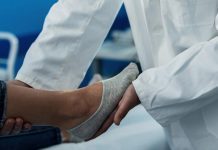The rates of Coronavirus exposure among Black and Hispanic pregnant women in Philadelphia are five times higher than among Asian and White women, as reported by Penn researchers.
According to the new study conducted by Scott Hensley, an associate professor of microbiology in the Perelman School of Medicine, and Karen Marie Puopolo, an associate professor of pediatrics and neonatologist at the Children’s Hospital of Philadelphia. Based on the research they proved that Black and Hispanic pregnant women in Philadelphia are more likely to have been exposed to the novel coronavirus than white and Asian women. The research report was published in Science Immunology.
Hensley said, “Pregnant women are fairly representative of community exposure, and these data provide more evidence, on top of what we already know with COVID-19, that health and socio-economic equity are inextricably linked.” And further added, “Hopefully, this will help lead to policies that address these inequities.”
The Study Finds, Black and Hispanic Pregnant Women Are More Exposed to Coronavirus
Researchers assessed to discover why Black and Hispanic pregnant women are more likely to be exposed to coronavirus.
These researchers analyzed levels of COVID-19 antibodies to estimate rates of exposure on 1,293 women who gave birth between April and June 2020 at the Hospital of the University of Pennsylvania and Pennsylvania Hospital. They assessed levels of SARS-CoV-2 antibodies to the coronavirus in pregnant women. Their records found that overall, 6.2 percent of pregnant women possessed antibodies to the virus. The researchers also found a significant imbalance across ethnic and racial groups- 4 percent in Hispanic or Latina women, 2.0 percent in White/Non-Hispanic women, 9.7 percent in Black women, and 0.9 percent in Asian women.
Marie Puopolo said, “Identifying the disparity in virus exposure will ideally help lead to the discovery of what is causing these differences, including factors rooted in systemic racism, and inform public health measures aimed at preventing further infections.”
Researchers evaluated samples stored at the Penn Medicine Biobank collected from 834 people before the pandemic and 31 people who recovered from COVID-19. They also analyzed samples from 140 pregnant women; these samples were collected before the pandemic. These assessments reveal that the overall false-positive rate is ~1.0 % in the serological assay utilized for the study.


















